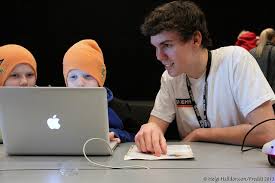 John and Jackie Kennedy bell (Appleton, Wisconsin), March 1960.
John and Jackie Kennedy bell (Appleton, Wisconsin), March 1960.
On January 2, 1960, Kennedy stated his intention to compete in presidential elections that same year. In the Democratic Party primary election, he competed with Senator Hubert Humphrey of Minnesota and Sen. Wayne Morse of Oregon. Kennedy defeated Humphrey in Wisconsin and West Virginia and Morse in Maryland and Oregon. The candidacy of Morse is often overlooked by many historians. It also beat some opposition MARK (many candidates were informal names written by the voter to fill in the ballot) in New Hampshire, Indiana and Nebraska. In West Virginia, visited the coal mines and talk to the miners for their support, the majority of voters in that virginia state was conservative, Protestant, very suspicious of Kennedy’s Catholicism, although this is precisely victorious in West Virginia, which confirm its standing as a candidate of great popular appeal.
With Humphrey and Morse democratic party out of the competition, the main opponent of Kennedy’s convention in Los Angeles was Senator Lyndon B. Johnson of Texas. Adlai Stevenson, the candidate nominated by the Democrats in 1952 and 1956, was not officially competing but had great support from the foundation, present or not in the convention. Sen. Stuart Symington of Missouri, was also hopeful. On July 13, Kennedy was elected presidential candidate of the Democratic Party, the second Catholic who managed to (Al Smith was the first in 1928, supported by Mr. Joseph Kennedy). Kennedy asked Johnson to be his candidate for vice-presidency, despite the opposition of many progressives, and the group close to Kennedy, including his brother Robert. But I needed Johnson’s popularity in the South to win in which it was expected to be one of the most hotly contested presidential election since 1916. The major topics gubernatorial included the Catholic Kennedy, Cuba, the concern about whether the Soviet Union was winning the race or not space and missile programs.
Kennedy felt that the issues important to Americans were setting aside in the debates, which were used to attack him for his Catholicism, apprehension shared by much of the population, not only because of the Protestant majority, but also because they never had a Catholic as President. To explain and allay the fears of the electorate as to whether their beliefs influence their decisions as president, and to try to return to the discussions that the main themes of the U.S. and global situation of 1960, September 12 gave a speech to the ” Ministerial Association of Greater Houston (Protestant religious organization in the Houston metropolitan area) (Greater Houston Ministerial Association), in which attempts to clarify the doubts about his religion and state as a political act in situations that are contrary to their religious principles. I mention that the items would be more important: the growing influence of communism, the poverty of the population, referring to people who saw in West Virginia did not have to eat and those families who were forced to surrender their farms, the shortage of schools and increasing the poor. He also mentioned the backwardness of the country in the space race. In this speech, said one of his famous phrases: “I am not the Catholic candidate for president. I am the candidate of the Democratic Party that it is also Catholic. I do not speak for the Church in public matters and the church does not speak for me” . Kennedy, who stressed in his presidency by the struggle for civil elections rights in the speech raised the topic of discrimination at that time was against Catholics, asking if the Catholics lost their right to be president orother public offices, from the day they were baptized.
Televised debate between presidential candidates during the Kennedy and Nixon
Between September and October were three presidential debates between Kennedy and Richard Nixon, then Vice President of the United States and also the Republican presidential candidate. On September 26 to 70 million viewers witnessed the first presidential debate broadcast on television in the history of the United States. UU. Before the first debate Nixon had spent two weeks in hospital because of an injury in his leg, lucia beard long hours, and did not want makeup. Appeared tense and uncomfortable, while Kennedy appeared relaxed. At the end of the debate much of the audience gave Kennedy the winner. But those who listened dnc chairman on the radio gave Nixon the winner, and said the result was a tie. On October 7 the second debate was held and the third and last debate took place on October 13.
- The Hill
What is your New Year’s resolution “ - The State
44 to the 44th Its 34 days until the 44th president, Barack Obama is inaugurated. Every day until then, and share a fact about the life of Obama, his place in presidential history clean and moments leading to the January 20 inauguration. Look for daily coverage in the newspapers and on the state.com. When he was in January, President-elect Barack Obama stands for an economic … - The State
44 to the 44th of 30 days to the 44th president, Barack Obama is inaugurated. Every day until then, and share a fact about the life of Obama, his place in presidential history clean and moments leading to the January 20 inauguration. Look for daily coverage in the newspapers and on thestate.com. President-elect Barack Obama started his inauguration at the memorial to be … - policy through Yahoo! News
Would you like a slim Obama’08 coffee mug, a four-year calendar with pictures of Barack Obama on the campaign trail, or a blue T-shirt with “Change can happen” emblazoned under stylized pictures of the incoming president and vice-chairman President ‘

Taking Charge: A Bipartisan Report to the President-Elect governor on Foreign Policy and National Security Transition by Frank Carlucci (Paperback – Jan 25, 2001)
